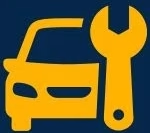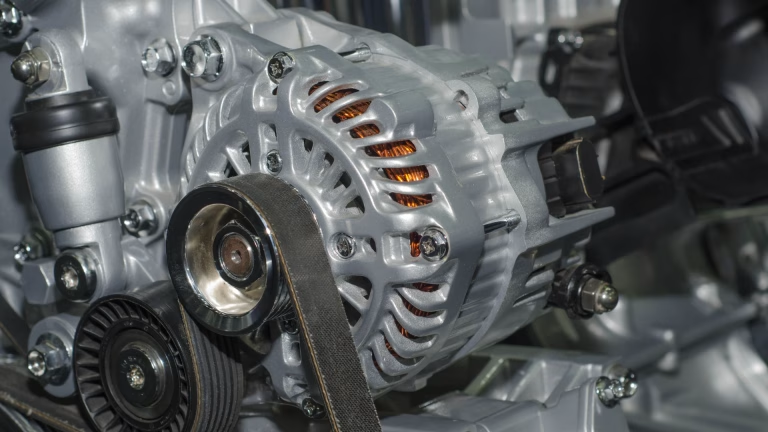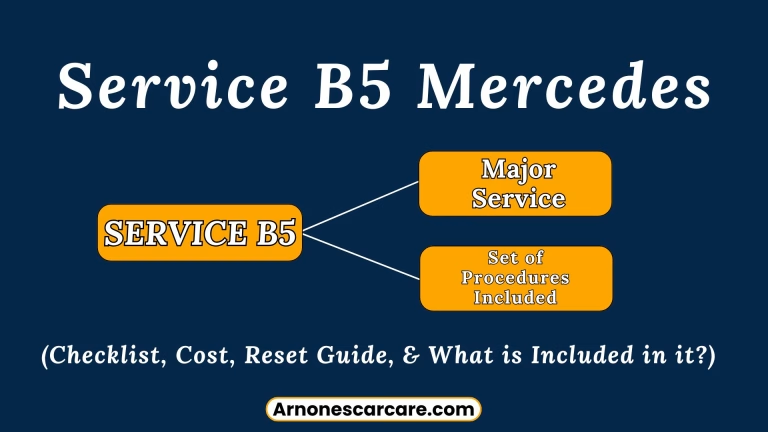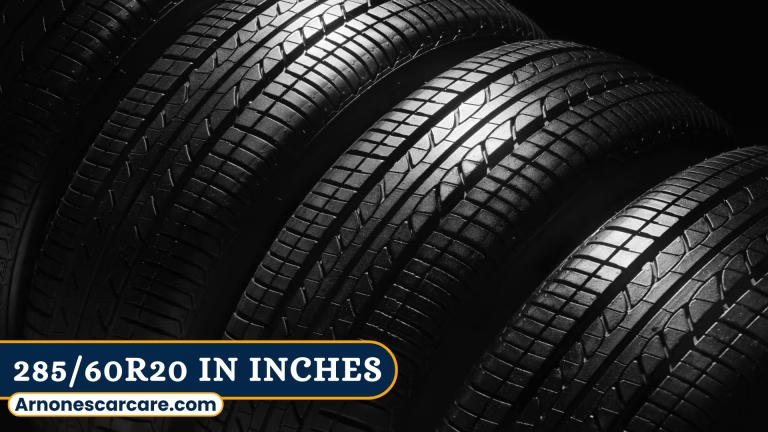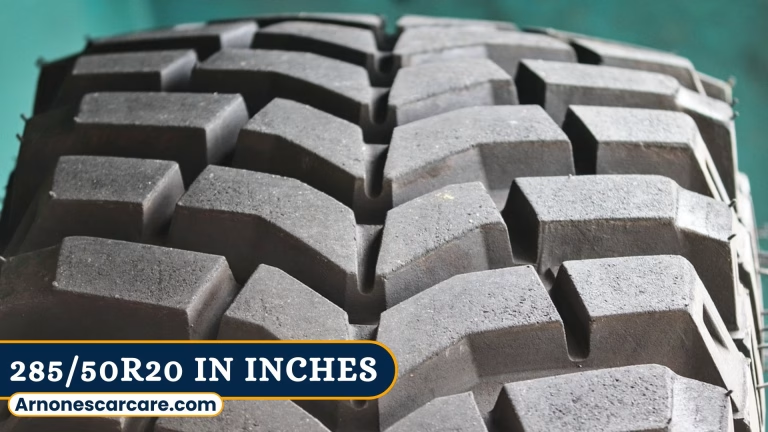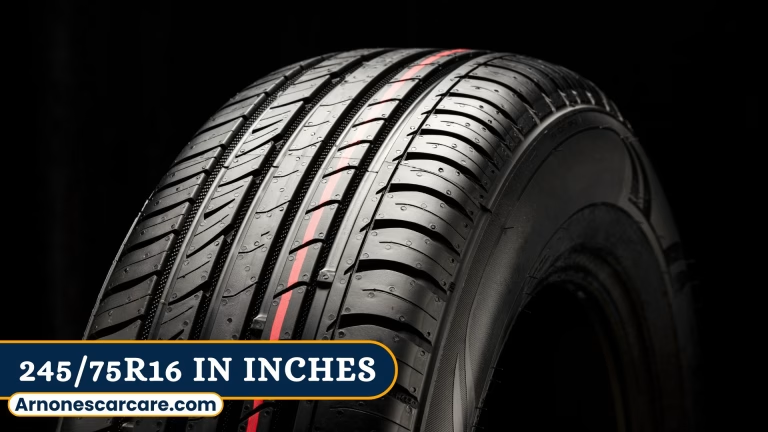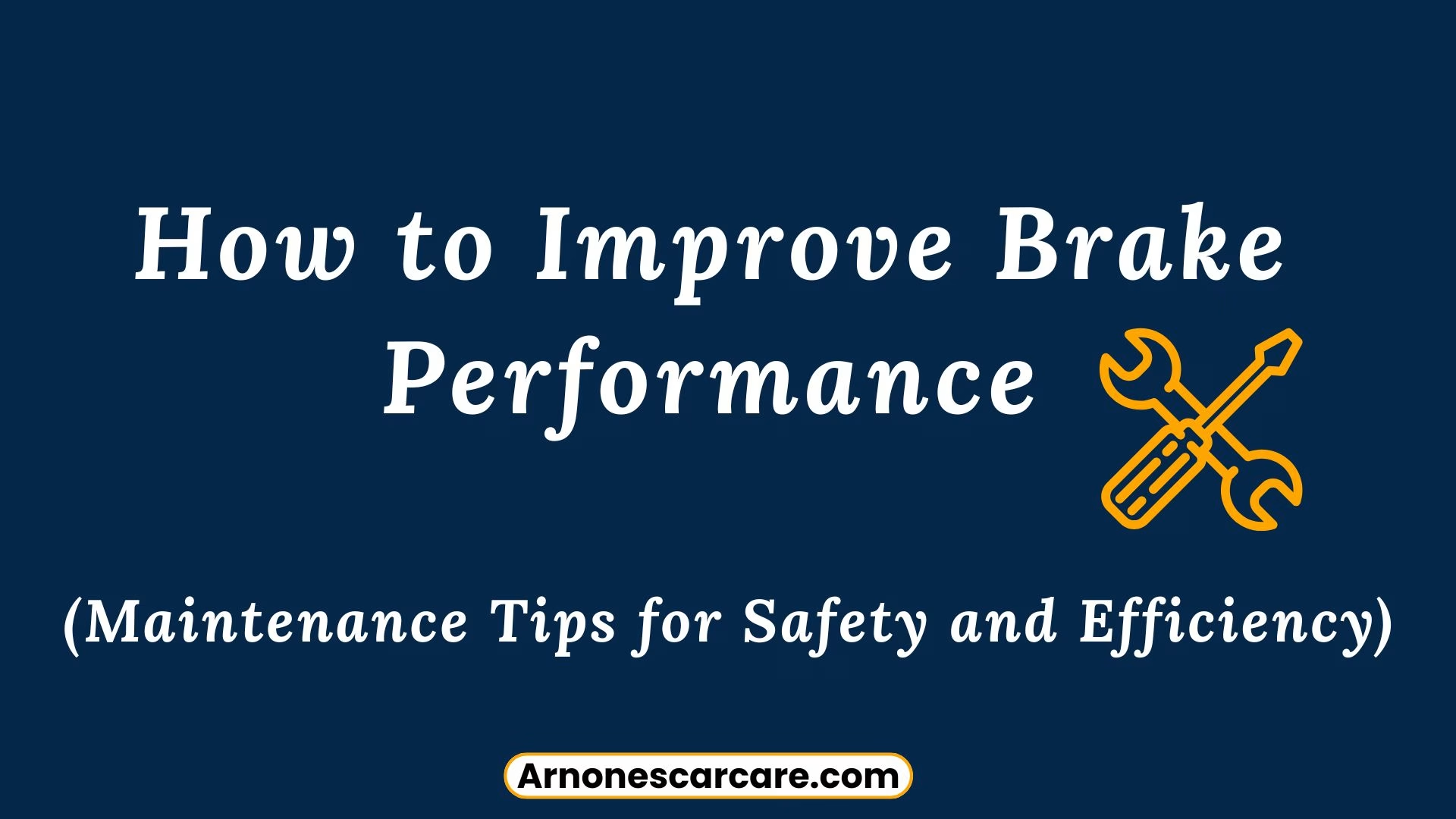
How to Improve Brake Performance: Maintenance Tips for Safety and Efficiency is something every driver should prioritize. Regular brake maintenance helps ensure your car stops quickly and safely, reducing the risk of accidents. Regular checks on things like brake pads, fluid, rotors, and calipers help keep your brakes working properly and safely.
When you take care of your brakes, you can avoid expensive repairs, reduce the risk of accidents, and make sure your car stops quickly when you need it to. Ignoring brake care can lead to serious problems like brake failure or longer stopping distances.
Whether you’re checking fluid levels yourself or having a professional look at your brakes, keeping them in good shape is one of the best things you can do for your safety on the road. Take the time to maintain your brakes and drive with peace of mind, knowing your car will stop when it needs to.
In this article, we’ll provide you with simple, practical tips to help improve brake performance, keep your vehicle safe, and enhance its efficiency.
Why Brake Maintenance is Important?
The braking system is responsible for slowing down or stopping your vehicle, which is crucial for preventing accidents. Neglecting brake maintenance can lead to issues like reduced braking power, longer stopping distances, and even complete brake failure.
Regular brake care ensures that your vehicle operates safely and effectively, helping you avoid costly repairs and unexpected breakdowns.
Key Factors Affecting Brake Performance
When it comes to vehicle safety, your braking system is one of the most important parts. Brake performance isn’t only about stopping—it’s about how quickly, smoothly, and reliably your vehicle responds. Several key factors affect how your brakes perform. Let’s break them down in simple terms.
1. Brake Calipers
Brake calipers press the brake pads against the rotors to create the friction needed to stop. If the calipers don’t work properly, your brakes won’t either. Fixed calipers usually perform better than floating types because they apply even pressure and are more durable.
2. Brake Pads
Brake pads come in different materials:
- Organic: Quiet but wear fast.
- Semi-metallic: Tough and good for heat but can be noisy.
- Ceramic: Long-lasting, quiet, and great all-around—but pricier.
Choosing the right brake pad depends on your driving style and the conditions you drive in.
3. Brake Rotors
Rotors (or discs) work with the pads to stop the car. Vented rotors release heat better than solid ones. Overheating causes brake fade, so vented designs help prevent that. Rotor material—like cast iron or composites—also affects how long they last and how well they perform.
4. Brake Fluid
Brake fluid transfers pressure from your foot to the brakes. It must be in good shape to work properly. It absorbs moisture over time, which reduces its boiling point and hurts performance. Replace it regularly to keep your brakes sharp.
5. Tires
Your tires connect the car to the road. Worn-out or low-pressure tires can cause poor grip, making your brakes less effective. High-quality tires with the right pressure and good tread can greatly improve stopping performance.
6. Weight and Load
The heavier your car, the harder it is to stop. Extra weight strains the brakes and increases stopping distance. That’s why trucks and SUVs often have bigger, stronger brake systems than smaller cars.
7. Driving Conditions
Road and weather conditions change how your brakes perform. Wet, icy, or gravel roads reduce grip. Driving downhill also puts extra pressure on the brakes. Knowing this can help you adjust your braking when needed.
8. Maintenance
Brake systems need regular care. This includes:
- Checking pads and rotors
- Inspecting fluid levels
- Replacing old or worn parts
Routine maintenance keeps your braking system safe and effective.
9. Driving Habits
How you drive affects your brakes. Hard, frequent braking wears out parts faster. Smooth, gradual stops extend brake life. Using engine braking on hills (especially in manual cars) can also reduce strain on your system.
Signs Your Brakes Need Attention
Watch for these warning signs:
- Strange noises: Squealing, grinding, or screeching when you brake
- Vibration: Steering wheel or brake pedal shakes when stopping
- Soft pedal: Brake pedal feels spongy or goes too far down
- Pulling: Car pulls to one side when braking
- Warning light: Brake warning light is on
- Burning smell: Strong odor after using brakes
Don’t ignore these signs. They mean your brakes need help right away.
Top Brake Maintenance Tips for Safety and Efficiency
Well-maintained brakes last longer and help your car run better. These simple tips will show you simple ways to keep your brakes in top shape.
1. Prioritize Routine Car Maintenance
Keeping your vehicle in top shape requires consistent maintenance. Whether it’s oil changes, fluid checks, or replacing essential components like spark plugs, regular servicing prevents unexpected breakdowns.
Always stick to your vehicle’s manufacturer recommendations for when services should be performed. By following the maintenance schedule, you can avoid costly repairs and keep your car running smoothly for a long time.
Why it’s important: It helps avoid breakdowns and boosts the performance of your car. Scheduled maintenance also helps in detecting issues early, saving money in the long run.
2. Monitor Tire Pressure Regularly
Tires that are underinflated can not only reduce your vehicle’s fuel efficiency but also shorten their lifespan. It’s crucial to check tire pressure frequently and ensure they are properly inflated. Underinflated tires can also negatively impact your braking system, making it harder for the brakes to function efficiently.
How to check: You can easily measure tire pressure using a tire gauge. If you’re not sure what the proper pressure is, you can find it in the owner’s manual or on a label inside the car door frame.
3. Always Refer to the Owner’s Manual
Your car’s owner’s manual contains all the necessary information regarding its care and maintenance. From the recommended fluid types to specific intervals for service, the manual is a valuable resource for keeping your car in prime condition. Don’t overlook the importance of reviewing it from time to time.
Why it matters: A manual offers detailed instructions for your car’s needs, ensuring you take the right steps at the right times to maintain optimal performance.
4. Inspect Brakes Regularly
Brakes are essential to your safety, so regular checks are crucial. Brake pads should be inspected every 6,000 miles to ensure they are not worn down beyond the recommended limit. Rotors also need to be checked for damage or wear. If any part of the braking system is compromised, get it inspected and repaired by a professional immediately.
Why it’s vital: Regular brake maintenance ensures your car can stop effectively, preventing accidents caused by brake failure.
5. Know Your Brake System
When it comes to brake systems, there are several options—hydraulic, air disc, or exhaust brakes—each suited to different vehicles. Understanding these systems will help you make an informed decision if you’re choosing brakes for a new vehicle or replacement. Some systems are more efficient than others, offering better performance and less maintenance in the long run.
Important note: Choose the best system for your vehicle’s application to ensure longevity and reliability.
6. Change Your Engine Oil Regularly
Oil changes are fundamental to your car’s longevity. Depending on whether your vehicle uses conventional or synthetic oil, the interval between oil changes can vary. Conventional oil typically needs changing every 3,000 miles, while synthetic oil can go up to 10,000 miles or more.
Why it’s essential: Fresh oil helps reduce engine wear, cleans the engine, and ensures smoother performance.
7. Use the Right Fuel
Choosing the correct octane rating for your car is crucial. Higher octane fuel doesn’t necessarily enhance your vehicle’s performance unless it’s a high-performance car that requires it. Using the right type of fuel helps prevent engine knocking and improves efficiency.
Fuel Tip: Always use the fuel recommended by your vehicle manufacturer to maintain engine health and avoid unnecessary repairs.
8. Replace Brake Shoes as Needed
For vehicles with drum brakes, it’s important to replace brake shoes regularly to maintain safety. Brake shoes should be changed when the indicator light comes on, or at least twice a year. Neglecting to replace them can lead to expensive repairs or even brake failure.
Why timely replacement is important: Changing brake shoes on time avoids severe damage to the braking system and ensures your vehicle’s safety.
9. Understand the Full Cost of Brake Maintenance
When it comes to maintaining brakes, it’s important to consider the full cost of ownership. The initial price of replacement parts might seem like the main expense, but the longevity and overall performance should also be factored in. Opt for OEM (original equipment manufacturer) parts for better reliability and fewer repairs in the future.
Cost Consideration: Although some systems may cost more initially, investing in quality can save money over time by reducing maintenance and improving vehicle efficiency.
10. Regular Care Keeps Your Car Running Smoothly
Taking care of your vehicle extends beyond mechanical checks—it also includes regular cleaning. Wash your car regularly to protect the paint and prevent corrosion. Keeping it clean also helps maintain the engine by preventing dirt and debris buildup.
Why it helps: Regular cleaning helps preserve the car’s exterior, reduces wear and tear, and improves overall vehicle performance.
Seasonal Brake Care
Different seasons need different care:
- Winter: Clean salt from brake parts to prevent rust
- Summer: Check fluid more often (heat can cause problems)
- Rainy seasons: Dry brakes after driving through water
- Before road trips: Do a complete brake check
This seasonal care helps your brakes work well all year long.
What Happens if Brake Maintenance Is Ignored?
Neglecting brake maintenance can result in dangerous driving conditions. Worn-out brakes may not respond effectively in emergencies, which could lead to accidents. Regular brake inspections and timely replacements ensure your car stops when needed most.
Potential risks: Ignoring brake maintenance can lead to brake failure, compromising your safety and the safety of others on the road.
How Often Should Brake Maintenance Be Done?
Brake maintenance should be performed based on the manufacturer’s recommendations. Typically, you should inspect your brakes every 6,000 to 12,000 miles. Brake pads may need to be replaced anywhere from 30,000 to 70,000 miles, depending on your driving habits.
Additionally, checking brake fluid and rotors should be part of your regular vehicle check-ups.
Remember: Always consult your owner’s manual and follow the recommended maintenance schedule to ensure safety and optimal brake performance.
When to Seek Professional Help?
While basic brake maintenance can be handled by most vehicle owners, there are times when professional help is necessary. If you notice any of the following signs, it’s crucial to have your brakes inspected by a mechanic:
- Squealing or grinding noises
- Vibrations when braking
- Brake pedal feels soft or spongy
- Reduced braking power or longer stopping distances
- Fluid leaks or puddles under the car
FAQs
1. How do I know if my brakes need replacing?
Look for signs like squeaking, grinding noises, or vibrations when braking. If you notice any of these, it’s time to get your brakes checked.
2. How long do brake pads last?
Brake pads typically last 30,000 to 70,000 miles, but this can vary depending on driving conditions and habits.
3. Can I perform brake maintenance myself?
While basic checks (like visual inspections) can be done at home, it’s best to have a professional mechanic handle any major brake repairs or replacements.
